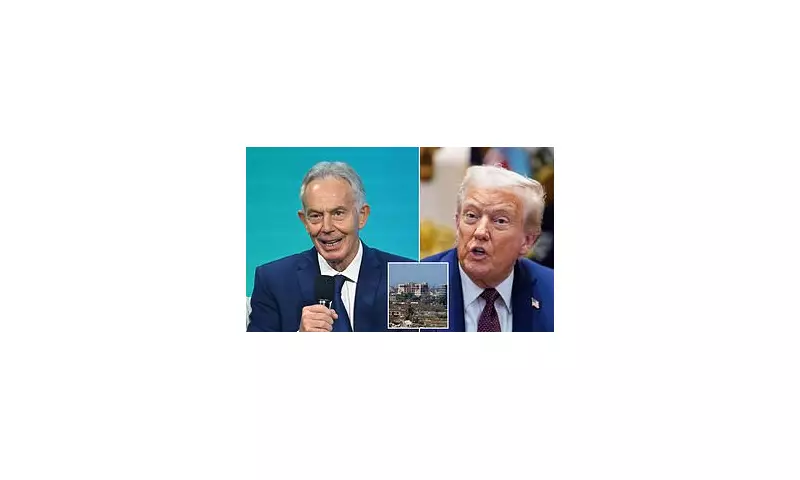
In a stunning political development, two of the world's most prominent former leaders are allegedly joining forces for an unprecedented mission. Tony Blair, the former British Prime Minister, and Donald Trump, the ex-US President, are engaged in high-level talks to spearhead the enormous task of reconstructing the Gaza Strip following the current Israel-Hamas conflict.
The ambitious plan, as reported, would see the duo leverage their vast, albeit controversial, political capital to lead an international consortium. Their primary objective would be to channel billions in investment to rebuild Gaza's shattered infrastructure, hoping that economic stabilisation could pave the way for a lasting political solution.
A Controversial Partnership for Peace
The potential collaboration bridges a significant political divide. Mr. Blair, a centre-left figure who served as Middle East Envoy for the Quartet, has long been engaged in the region's diplomacy. Mr. Trump, a Republican firebrand, oversaw a presidency that brokered the Abraham Accords but also put forward a peace plan heavily favouring Israel.
Their shared interest in this venture suggests a unique, realpolitik approach to one of the world's most intractable conflicts. The theory is that their combined influence could attract significant private investment and navigate the complex political hurdles that have stymied previous reconstruction efforts.
The Enormity of the Challenge
The scale of destruction in Gaza is catastrophic. Previous conflicts have required billions in aid for recovery, and the current war has inflicted damage on a far greater magnitude. Essential infrastructure—including hospitals, schools, homes, water systems, and power networks—lies in ruins.
Any rebuilding effort would face immense logistical and political challenges, including:
- Ensuring aid bypasses Hamas: A primary concern for Israel and its allies is preventing reconstruction funds and materials from being diverted by the militant group.
- International funding: Securing financial commitments from a coalition of nations, Gulf states, and international organisations.
- Israeli cooperation: Gaining the necessary security and logistical approvals from the Israeli government for the import of vast quantities of construction materials.
- Palestinian support: Achieving buy-in from Palestinian political entities and civil society for a plan led by such contentious figures.
While the involvement of Blair and Trump would undoubtedly bring high-profile attention to Gaza's plight, it remains to be seen whether their partnership can translate into tangible progress on the ground where so many others have failed. The world will be watching to see if this unlikely alliance can build not just structures, but a foundation for peace.





